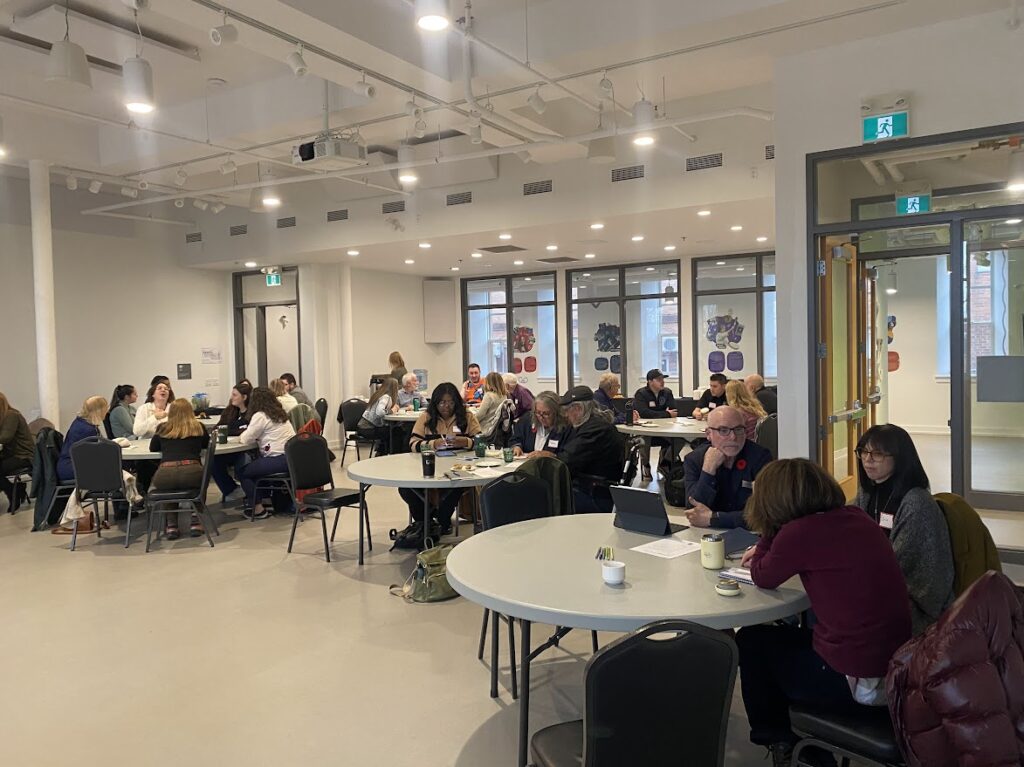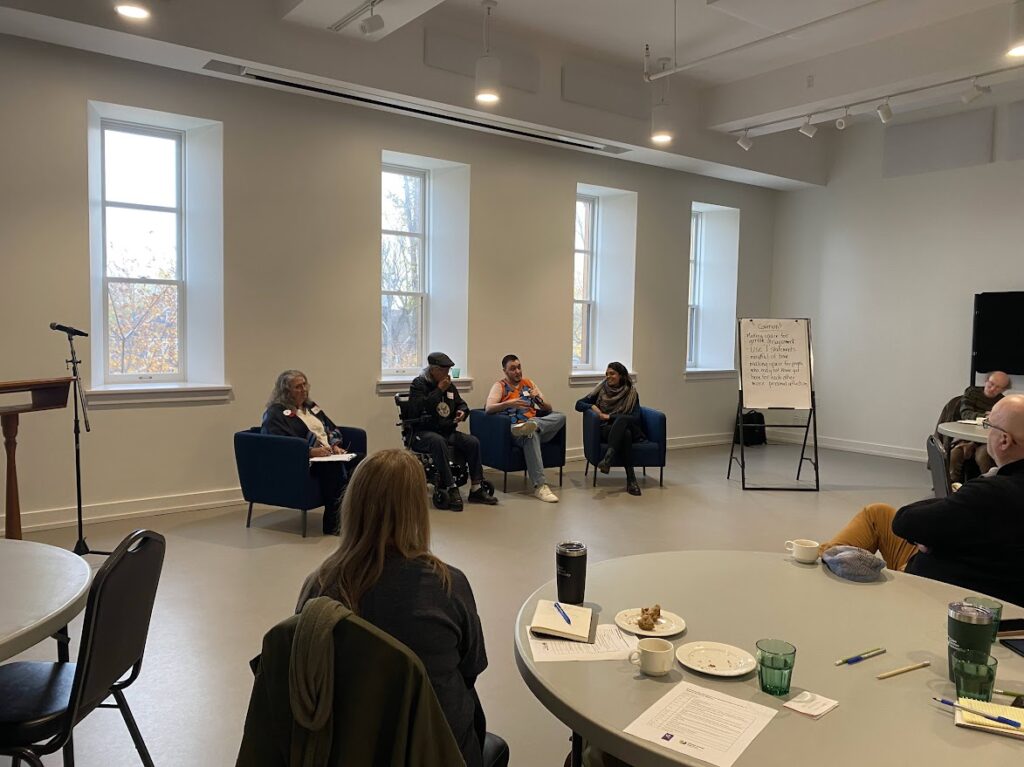Community Dialogue on Sustainable Futures in Unama’ki-Cape Breton

On November 5, KAIROS and the Climate Change Task Force – Unama’ki/Cape Breton (CCTF) co-hosted a community dialogue on sustainable futures and just transition in Sydney, Nova Scotia. The dialogue was convened as part of KAIROS’ Strengthening Voices for a Just Transition project. This project aims to nurture dialogue on the social, economic and environmental dimensions of the energy transition. Additionally, it’s goal is to strengthen the transition’s policymaking with principles of equity, fairness, Indigenous rights and sovereignty, and ecological integrity.
Beth Lorimer, KAIROS’ Ecological Justice Program Coordinator, facilitated the day, opening discussion around feelings about the energy transition and participants’ concern for the future.
In the morning, Dr. Terry Gibbs, from Cape Breton University and co-founder of CCTF, facilitated a panel discussion of local perspectives on climate change, transformation and alternative futures. The panelists included Mi’kmaw Elder Albert Marshall, Unama’ki Institute of Natural Resources Advisor; Brady Doucette, Potlotek Mi’kmaq Nation, who is pursuing a Masters of Education in Sustainability, Creativity and Innovation; and Mary Best, a local climate and just transition advocate.

Elder Albert Marshall shared his teachings around two-eyed seeing, a guiding principle that encourages people to view the world through both Indigenous and Western ways of knowing. Participants found this principle particularly relevant to the conversation on just transition.
In the afternoon, participants developed a context map to envision and consider the future they want to see in the region, identifying the ways that humanity might interact with the natural world, how we will get around, what we will do for work, how we will build community and take care of one another.
One participant remarked “I always find future-envisioning helpful and hope-inspiring. It reminds me that there will be a future, whether or not I will be here to observe or participate.”
Other dialogues were held in Saskatoon and Edmonton earlier this year, as part of this project – each location bringing its own unique approach to the conversation. We hear that there will not be one but multiple just transitions that are place-based and time-bound. The term ‘just transition’ continues to be a source of tension and confusion across Canada but for many it is a way of considering a broad systems approach to this time of energy transition.
This tension is also reflected on the global stage and particularly at the UN Climate Conferences (COP), where states have been negotiating a Just Transition Work Programme since 2022. No progress was made at COP29 in Baku, Azerbaijan on the Programme, which is intended to created pathways for workers during the transition from fossil fuels.

The lack of global progress at COP29 was lamented in a press release from Climate Action International:
“Two years of progress on Just Transition, where Parties were starting to shape a common vision, were trashed due to bad process, showing dismay for the millions of people concerned about their lives, jobs, livelihoods. In COP29, justice was not served on any front.”
The global events and KAIROS’ community dialogues demonstrate that more conversation is needed in Canada. We need to be working towards a national strategy that will support workers. The approach must be holistic to support communities and the unique needs of Indigenous peoples through this time of transition.
By Beth Lorimer, KAIROS’ Ecological Justice Coordinator.
